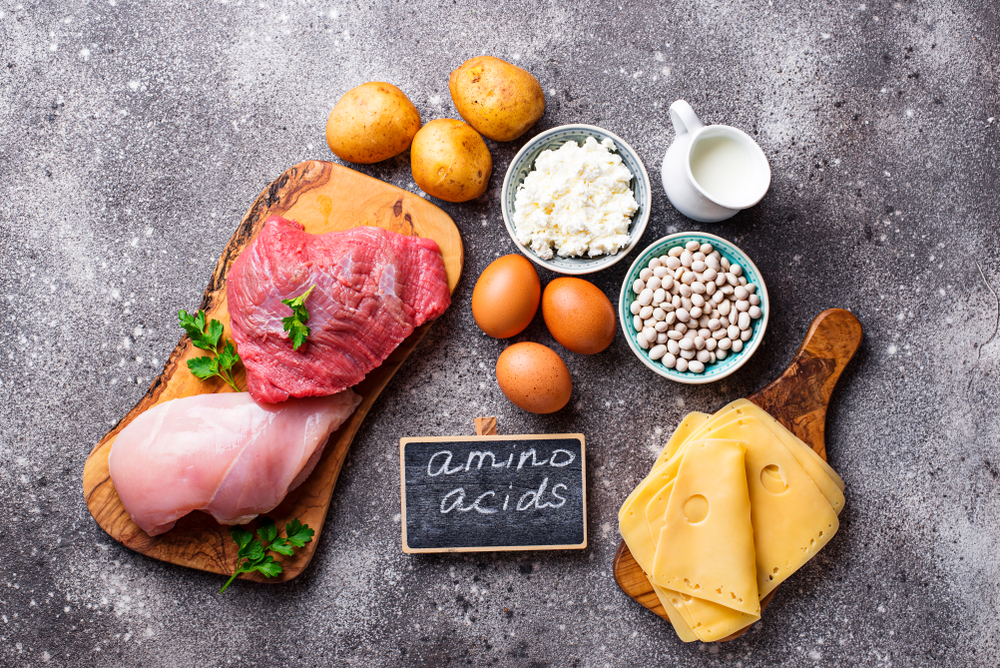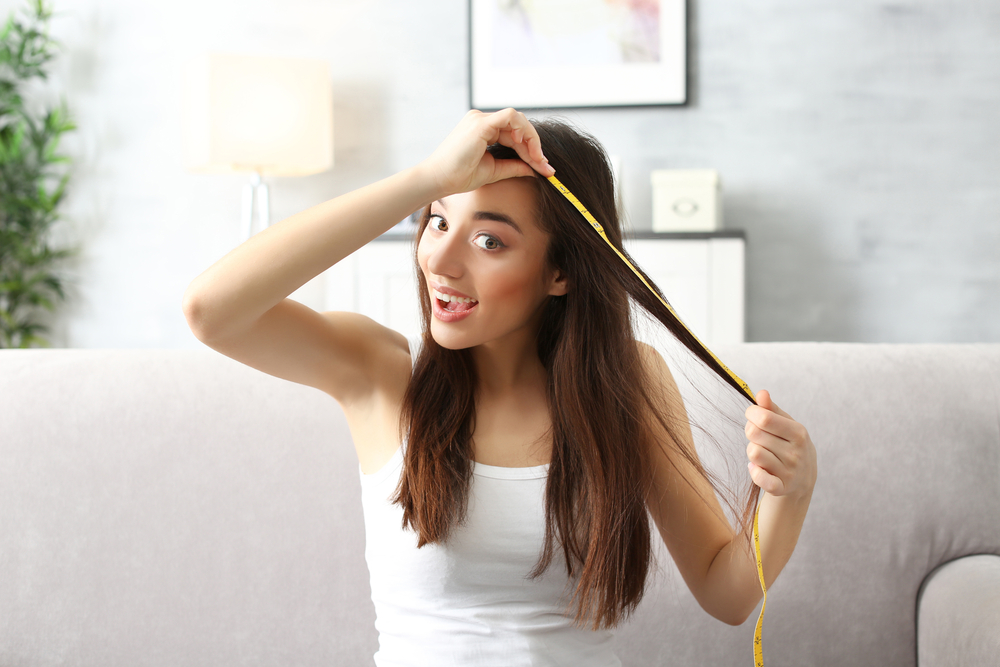Which Vitamin Deficiency Causes Hair Loss?
2022-08-24
- Deficiencies in vitamins and minerals such as iron, zinc, vitamin C, folic acid, and biotin can all contribute to hair loss.
- Nutritional deficiencies may be corrected by using vitamin supplements or making dietary changes.
- Vitamin supplements are not substitutes for whole foods, and you should always consult a medical professional before making significant changes to your diet, particularly if a significant vitamin deficiency is involved.
- Hair loss is a multifaceted problem that should be approached holistically.
Deficiencies in specific vitamins like iron, zinc, and vitamin D have each been linked to hair loss conditions like alopecia areata. Research has shown that those suffering from hair loss due to androgenic alopecia can benefit from, for example, iron and vitamin D supplementation.
While vitamin deficiencies affect hair growth and other bodily functions, consuming some vitamins in excess can also lead to hair loss!
For that reason, there’s value in understanding the right vitamin intake you need and not exceeding the recommended daily allowance of each.
In this article, we take a closer look at the various vitamins that contribute to healthy hair growth and what you can do to ensure you get your daily dose.
What’s the Link Between Vitamins and Hair Loss?
From an early age we’re taught to eat our fruits and vegetables—these foods contain essential vitamins that our bodies need to grow and function optimally.
It’s no surprise then, that vitamin deficiencies can prevent hair growth and lead to issues like hair thinning and hair loss.
Studies have found that many people who experience hair loss also have certain nutritional deficiencies.
Dietary adjustments, as well as vitamin supplementation, can help to address these.

Food for Thought: Why Is Healthy Hair so Important? Much like our skin, our hair serves as an indicator of our overall health. This means that issues like brittle hair or thinning hair may hint at nutritional deficiencies or underlying health conditions.
A few reasons why healthy hair is important include:
It protects your scalp from sun damage. It guards against dryness and dandruff. It may improve your confidence and overall quality of life.
Which Vitamins Are Important for Hair Growth?
So, what vitamin deficiency causes hair loss? Several are required for healthy hair growth. In the section below, we identify these important vitamins and their recommended daily dosages.
Later on, we’ll explain where and how you can get these vitamins.
Vitamin E:
Vitamin E is essential for healthy skin, and it assists with hair growth by preserving the health of your scalp.
This vitamin reduces oxidative stress (an imbalance of free radicals and antioxidants) and protects your scalp’s skin barrier.
Recommended dosage:
Men: 10 mg of vitamin E per day.
Women: 8 mg of vitamin E per day.
Folic acid (folate):
Folic acid, or folate, is important in the production of new cells and hair growth. Adequate folic acid will ensure the healthy growth of your hair and nails.
This vitamin is especially important for those who are pregnant or would like to conceive. A folic acid deficiency can also cause premature graying hair.
Recommended dosage:
Adults: 400 mcg per day.
Pregnant adults: 600 mcg per day.
Breastfeeding adults: 500 mcg per day.
Vitamin C:
Vitamin C is vital for stimulating collagen—an essential protein in hair, skin, and nails.
Vitamin C also helps the body absorb iron, which is an important mineral for hair growth and health. Therefore, a vitamin C deficiency can also cause an iron deficiency.
Recommended dosage:
Men: 90 mg per day.
Women: 75 mg per day.
Pregnant adults: 85 mg per day.
Breastfeeding adults: 120 mg per day.
Vitamin D:
A vitamin D deficiency has been linked to androgenic alopecia (male pattern hair loss and female pattern hair loss).
Vitamin D is essential for stimulating the growth of new hair follicles.
It’s also important for those with androgenic forms of hair loss and telogen effluvium (a reversible form of hair loss caused by a stressful event).
_Recommended dosage: _
Adults: 10 mcg* per day.
*It takes 10-30 minutes of sunlight each day to get the recommended dose of Vitamin D, and those with darker complexions may require more sun exposure.
Vitamin A:
The body needs vitamin A to ensure healthy growth.
Where hair is concerned, vitamin A is used to produce sebum (an oily substance that keeps the scalp healthy and prevents hair breakage).
Recommended dosage:
Men: 900 mcg per day.
Women: 700 mcg per day.
Food for Thought: How Much Is Too Much?
Though vitamin A is essential, too much of it can cause vitamin A toxicity—another cause of hair loss.
Early signs of vitamin A toxicity include:
Eyebrow alopecia (thinning or loss of the eyebrows). Dry or rough skin. Cracked lips.
Some other symptoms associated with vitamin A toxicity include:
Seizures. Headaches. Blurred vision. Drowsiness. Abdominal pain. Nausea or vomiting. Irritability. Pruritus (itching).
If you're experiencing any of the symptoms above and suspect you may have vitamin A toxicity, consult your doctor for professional medical advice.
Zinc:
Zinc aids hair growth and repair. It ensures that the oil glands around the hair follicles function optimally.
A zinc deficiency has similar symptoms to an iron deficiency and typically results in hair loss or hair damage.
Alopecia areata is a common form of hair loss caused by zinc deficiency.
Recommended dosage:
Adults: 40 mg per day.
Iron:
Iron deficiency is one of the world’s most common nutritional deficiencies.
Those who menstruate are most likely to experience an iron deficiency, and people who are vegans and vegetarians are at risk, too.
Recommended dosage:
Men: 8 mg per day.
Women: 18 mg per day.
Pregnant adults: 27 mg per day.
Riboflavin (Vitamin B2):
Riboflavin, or vitamin B2, is an antioxidant that helps keep our nails and hair healthy by activating other vitamins, such as vitamin B6 and niacin.
Although riboflavin deficiency is quite rare in the U.S., it can cause hair loss if it occurs.
_Recommended dosage: _
Men: 1.3 mg per day.
Women: 1.1 mg per day.
Pregnant adults: 1.4 mg per day.
Lactating adults: 1.6 mg per day.
Biotin (B7):
Biotin is essential for keratin production and the health of hair follicles. People with a biotin deficiency may experience hair loss, brittle nails, and skin rashes.
Heavy drinkers and smokers, and those who are pregnant are particularly at risk of developing a biotin deficiency.
_Recommended dosage: _
Adults: 30 mcg per day.
Breastfeeding adults: 35 mcg per day.
Vitamin B12:
Vitamin B12 is essential for red blood cell growth and helps promote healthy hair. Vitamin B12 deficiencies have been shown to increase hair loss.
Recommended dosage:
Adults: 2.4 mcg per day.
Pregnant adults: 2.6 mcg per day.
Breastfeeding adults: 2.8 mcg per day.
Selenium:
Selenium is an antioxidant that protects cells from oxidative stress.
While selenium deficiencies are rare, one study found that selenium supplementation can decrease hair loss in patients undergoing chemotherapy.
Recommended dosage:
Adults: 55 mcg per day.
Food for Thought: How Do I Know If I Have a Vitamin Deficiency?
There are many tell-tale signs of vitamin deficiencies.
However, specific symptoms may depend on which vitamin deficiency you have, and it may be best to visit your doctor to get professional advice.
Some common symptoms of vitamin deficiencies include:
Brittle nails and hair. Ulcers or cracks in the mouth. Bleeding gums. Scaly skin. Dandruff. Fatigue. Weight loss. Dizziness. Irregular heartbeat. Numbness in the extremities. Hair loss.
What Types of Hair Loss Do Vitamin Deficiencies Cause?
Vitamin deficiencies, along with other factors such as genetics, can contribute to several types of hair loss, including—but not limited to—the following:
- Androgenic alopecia (male pattern hair loss and female pattern hair loss).
- Telogen effluvium (hair loss triggered by stress).
- Anagen effluvium (abnormal, sudden hair loss that may be caused by medical treatments or toxic chemicals).
- Alopecia areata (hair loss that happens when the immune system attacks hair follicles).
What Other Nutrients Should I Be Getting?
Aside from the vitamins and minerals mentioned above, there are other nutrients you should consume to ensure healthy hair follicles, minimize hair thinning, and avoid hair loss conditions.
Essential fatty acids (Vitamin F)
Essential fatty acids work to heal your hair from the inside by supplying the scalp with the right nutrients and proteins.
Omega-3 and omega-6 are the two main essential fatty acids, and they can be found in various foods, including:
- Seeds and nuts.
- Animal proteins, such as meat, fish, chicken, and eggs.
- Tofu.
- Plant oils, such as flaxseed oil, canola oil, and avocado oil.
Amino acids
Also known as the building blocks of protein, amino acids are essential compounds in the human body.
They’re vital for maintaining healthy, luscious locks, but some of their other functions include:
- Breaking down food.
- Building and repairing tissues in the body.
- Maintaining a functioning digestive system.
- Ensuring healthy skin and nails.
- Strengthening the immune system.
There are over twenty amino acids, and three of these—namely glycine, proline, and hydroxyproline—are used to make collagen. In recent years collagen supplements have become quite trendy, and with good reason.
Collagen contains the amino acids used to create keratin, which is the main protein hair is composed of. Sufficient collagen will ensure a healthy scalp and strong hair follicles.

What’s the Best Way to Get the Vitamins Important for Hair Growth?
Most nutritional deficiencies can be remedied in one of two ways: diet or vitamin supplementation.
For example, if you have a zinc deficiency, you could either consume more oysters, shrimp, and blueberries (all high in zinc) or get your recommended daily dose of zinc in tablet form.
Depending on your requirements and your lifestyle, you may choose to get some of your vitamins the natural way—from food—and others from dietary supplements.
Eat a healthy, balanced diet
You can avoid vitamin deficiencies that lead to hair loss by eating a diet that contains all the necessary food groups in their correct proportions.
Many doctors recommend obtaining your vitamins from food, but this may not be a practical solution for some—especially those of us who have a busy lifestyle.
To make things easier, we’ve put together the table below. It will tell you which foods contain the vitamins you need to combat hair loss.
| Vitamins for Hair Loss | Where to Find It |
| Vitamin E | Almonds, peanuts, sunflower seeds, wheat germ oil, dark green vegetables (spinach, collard greens), asparagus, and kiwis. |
| Folic acid (folate) | Dark green vegetables (broccoli, kale, spinach), cabbage, chickpeas, liver, and fortified foods such as cereals and bread. |
| Vitamin C | Cantaloupe, citrus fruits, peppers, strawberries, blackcurrants, broccoli, potatoes, and kiwis. |
| Vitamin D | Sunlight exposure, salmon, sardines, red meat, egg yolks, certain types of mushrooms, liver, and fish liver oils. |
| Vitamin A | Dairy products, beef liver, eggs, fish oils, leafy green vegetables (kale, spinach), and yellow fruits (mangoes, carrots, sweet potatoes, and winter and summer squash). |
| Zinc | Oysters, shrimp, lamb, pork, beef, chickpeas*, lentils*, beans*, blackberries, cantaloupes, apricots, blueberries, and kiwis.
*Zinc from legumes isn’t as easily absorbed as zinc from animal products. However, soaking and heating plant products can increase your zinc intake from these sources. |
| Iron | Shellfish, red meat, spinach, pumpkin seeds, quinoa, legumes, liver, turkey, and broccoli. |
| Riboflavin (Vitamin B2) | Milk, eggs, mushrooms, organ meats, lean meats, and fortified grains. |
| Biotin (Vitamin B7) | Egg yolks, organ meats, nuts, legumes, bananas, cauliflower, sweet potatoes, mushrooms, broccoli, and avocados. |
| Vitamin B12 | Organ meats (liver and kidneys), sardines, clams, beef, tuna, salmon, and fortified milk and grain products. |
| Selenium | Brazil nuts, seafood, organ meats, turkey, chicken, eggs, broccoli, and fortified cereals, milk, and milk alternatives. |
Take hair supplements
For those who experience nutrient deficiencies, taking vitamin supplements for hair loss can be effective.
Dietary supplements come in a variety of forms—tablets, capsules, powders, gummies, drinks, and energy bars—making it easier for you to get your required nutrients.
You can find supplements on the market for almost any vitamin you’re lacking.
However, always remember that vitamin supplements aren’t meant to be replacements for whole foods.
A balanced diet will provide more nutrition than supplements from a bottle, but doctors may recommend a vitamin supplement if you need to address an existing deficiency.
Food for Thought: Can Vitamins Help All Kinds of Hair Loss?
If your hair loss was caused by a vitamin deficiency—for example, a biotin deficiency experienced by pregnant women—then correcting this nutritional deficiency may help you reverse the hair loss.
However, it's important to keep in mind that hair loss is often a multifaceted problem.
Dietary supplements, such as vitamins, may not be able to combat genetic hair loss, for example.
Always speak to a licensed clinician or a dietician before you make any drastic changes to your lifestyle or diet.
What Else Can I Do to Grow My Hair?
The best hair loss solutions can vary depending on the type of hair loss you have and how long you’ve struggled with the problem.
Correcting vitamin deficiencies may reduce issues like hair thinning and brittle hair, but there are many other things you can do to ensure better overall hair health.
Reduce strain on hair
This means going easy on heat styling, and chemical and color treatments.
Keep it natural wherever possible, and follow these tips from Shapiro MD’s dermatologists and the American Academy of Dermatology (AAD) to ensure your hair stays healthy and happy:
Invest in the right formulas
A wide variety of medications and treatments can help with hair loss.
Whether you’re suffering from hair thinning or you just want something that will aid hair growth, Shapiro MD has you covered.
We carry a range of proprietary hair loss solutions for women and men, including powerful natural shampoo and conditioner formulas that combat the hair loss hormone DHT, and FDA-approved topicals shown to help regrow hair in both men and women.
Trim your hair
Cutting your hair may seem counterintuitive when you’re trying to grow it out, but split ends should be trimmed as they can travel up the hair shaft and make it harder for you to grow healthy hair.
Keeping your hair free of split ends will also give it a shinier, more vibrant appearance.
Reduce stress
Stress puts strain on the body and this may prevent hair growth. It can also leave you more prone to developing alopecia areata—a condition where the immune system attacks the hair follicles.
Get a massage
Whether you go to a spa for this or use a scalp massaging tool, getting a massage can be an incredibly relaxing experience.
It helps to decrease stress and also increases blood flow to the scalp, making hair grow faster.

Where Can I Learn More about Vitamins and Hair Loss?
Have you been battling thinning hair? Do you think it may be an iron deficiency, or something else? Shapiro MD can help.
Proper nutrition is key to growing great hair. However, you can supplement a healthy hair diet with the right care products, including shampoos, conditioners, and other treatments developed by licensed hair experts.
Get started today with our free hair quiz to find the right formula for your situation.


